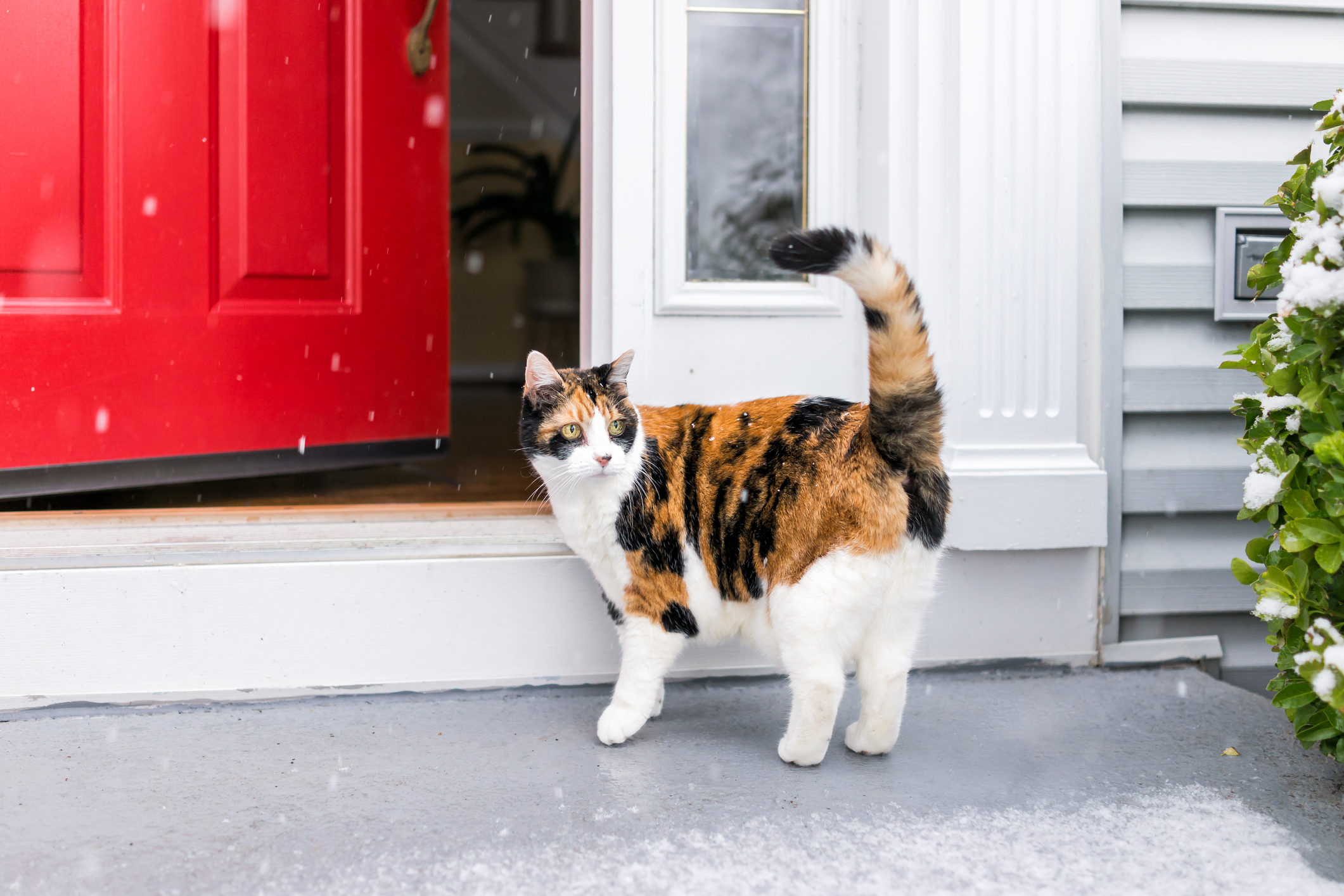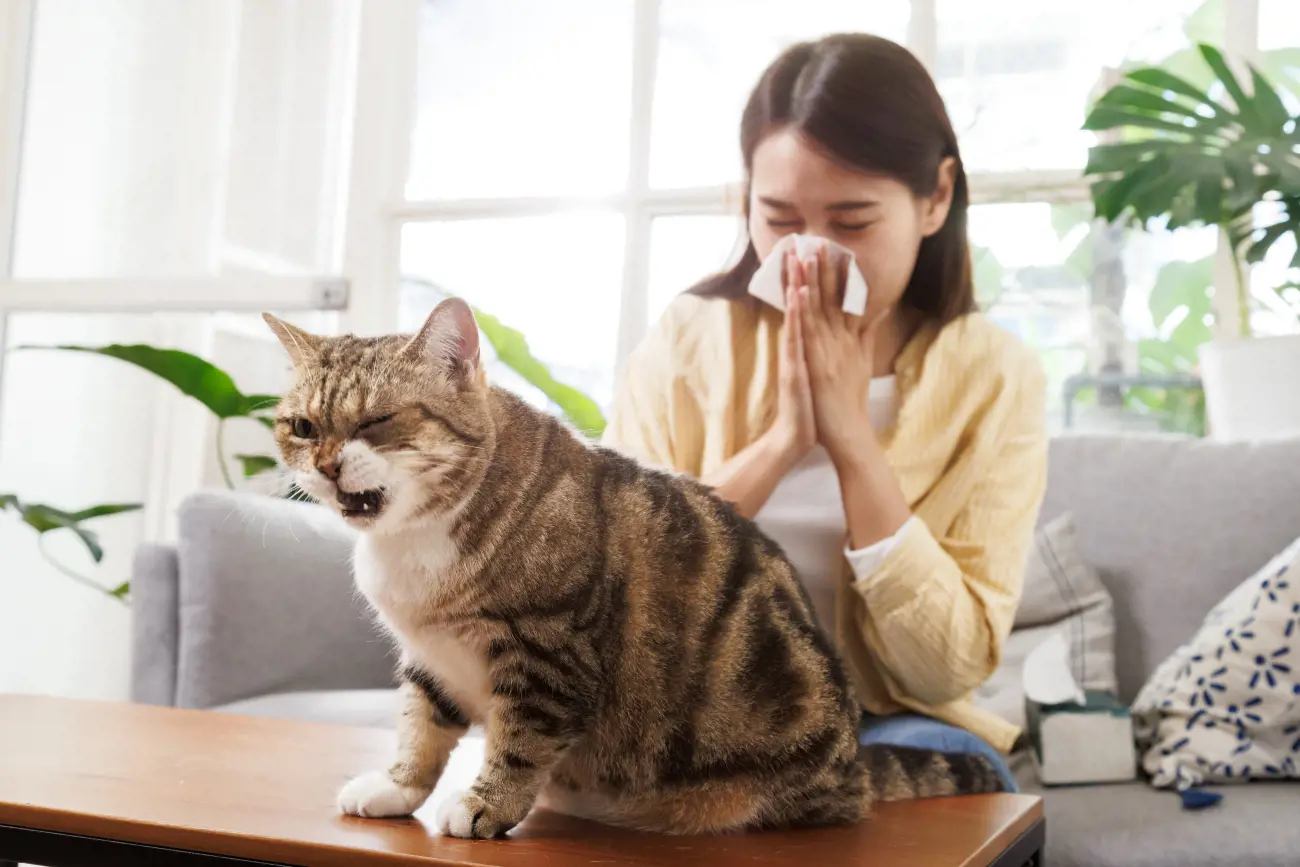Why do people say cats have 9 lives?
6th January, 2020

While nobody knows exactly where the myth comes from, any cat owner can tell you why it’s claimed these hardy little furballs have nine lives: felines have an incredible set of survival skills.
It seems there’s no situation our pussycats can’t get themselves out of. They can leap from great heights and land with amazing agility; they have the intellect to carefully avoid potential dangers before they become serious risks.
It’s important to remember, though: your kitty isn’t invincible. We may make light of their ability to defy the odds, but, sadly, at some point serious illness or injury might occur.
The myth that felines have nine lives doesn’t hold true, which is why it’s vital to secure reliable pet cover.
Purely Pets is here to help. We want to make sure your cat’s protected, whether they stay indoors or roam outside. Our straightforward pet insurance can be tailored to your pet’s needs and your budget, keeping everyone happy.
We’re cat lovers, too, so we thought it’d be fun to take a closer look at some classic pussycat myths!
Who made up the ‘9 lives’ myth?

According to Blue Cross, no one is entirely sure where this myth originates.
Even as far back as Ancient Egyptian times, kitties were worshipped as sacred creatures, with many attaching superstitions, supernatural powers and mystical beliefs to pussycats.
As a result, some suspect the myth started here.
Others trace the rumour back to William Shakespeare, as there’s a mention of the nine lives of felines in Romeo and Juliet. There’s also an ancient proverb (author unknown) that states: “A cat has nine lives. For three he plays, for three he strays and for the last three he stays.”
It’s more plausible that the myth gathered weight over time, due to our kitties’ impressive ability to get themselves out of tight corners, thanks to their intelligence, dexterity and agility.
Are black cats unlucky?
This myth can be incredibly damaging, as, even today, black cats are harder to rehome due to the negative (yet fictional) associations they carry.
For centuries, black cats have featured in folklore and mythologies.
In the US and many parts of Europe, black cats are thought to signify bad luck.
In Italy, some believe that a black cat hopping on the neighbouring bed to that of an ill person signals oncoming death, while in China, black cat sightings are sometimes interpreted as symbols of impending poverty.
On the other hand, in Japan, crossing paths with a black pussycat is a sign of good fortune – in Germany this depends on the direction in which the cat is walking: left to right is good, right to left is bad.
If you happen to find a black puss on your doorstep in Scotland, it’s believed you’ll soon come into wealth.

Do cats land on their feet every time?
Cats are incredibly agile, in large part due to their flexible backbones and ‘righting reflex’, which enables them to twist very rapidly mid-air whilst falling, landing with ease.
Of course, this isn’t always the case – Blue Cross states that, heartbreakingly, many kitties suffer fatal injuries as a result of serious falls.
Along with securing specialist pet cover, make sure you keep windows securely fastened and attach mesh to them (plus any balconies) during summer months.
Let’s consider some other myths about our cute kitties:
Do cats only purr when they’re happy?
While it’s true that moggies often purr to express happiness and contentment – especially when being fussed by their humans – the sound doesn’t always signify comfort.
Cats may purr out of fear, pain or discomfort, as a means of self-soothing. They also purr to comfort their kittens.
Does putting butter on your cat’s paws help them get home?
Unfortunately, many of us still believe this myth, applying butter to our kitties’ paws when we move to a new house, before we let them outside.
Not only is this untrue, it’s also potentially dangerous. The myth states that butter helps to mask the smell of your mog’s old home, helping them settle into their new habitat and acclimatise as they clean off the butter.
This doesn’t work for a variety of reasons. The scent of your previous house will still remain on every other part of your cat, and they’ll likely become even more distressed when trying to lick their grease-covered paws clean.
It’s far safer to keep your pussycat indoors during the first two weeks of a move, giving them the time to realise that their new abode is secure.
Make sure they’re microchipped, then gradually progress to supervised trips outside, right before their mealtimes – only do this during the daytime. After a few weeks of this, they should settle in.

Do cats prefer being alone?
While cats tend to have a more solitary, aloof nature than their canine counterparts, they’re still incredibly loving creatures, often forming deep bonds with their owners – and sometimes with household dogs, believe it or not.
It’s true that many kitties prefer to be the only household cat, but feline friendships can and do form, as long as they don’t have to share or wait for resources such as food or personal space – otherwise a catfight or two may ensue.
Is milk the best treat for cats?
Cow’s milk has long been viewed as a nutritious treat that felines need for good health, even after kittenhood. In actual fact, milk can cause an upset stomach, as many kitties become lactose intolerant once their mum weans them.
If you provide your moggie with a balanced, healthy diet, they should receive all the nutrients they need. However, if you wish to give your kittycat milk, it’s advisable to purchase a lactose-free option.

Protecting your cat’s (one) precious life
If you’re a cat lover, you’ll know just how resilient these beautiful creatures can be.
However, the fact remains: reliable pet insurance is a necessity from day one of kitty ownership, as you never know when injury or illness might strike.
Purely Pets offers specialist pet insurance designed to protect your pussycat (and your bank balance).
We’re here to give you reassurance your feline’s covered, so why not contact our friendly team?
Get a quote today.
Helpful Pages
Recent Posts

Why do Great Danes bury their heads?
12/03/25
Find out more about Beagles
28/02/25Pet Insurance Quote
- 98% claims paid *
- Claims paid directly to vets
- 24/7 vet video consultations
- Interest free monthly payments


